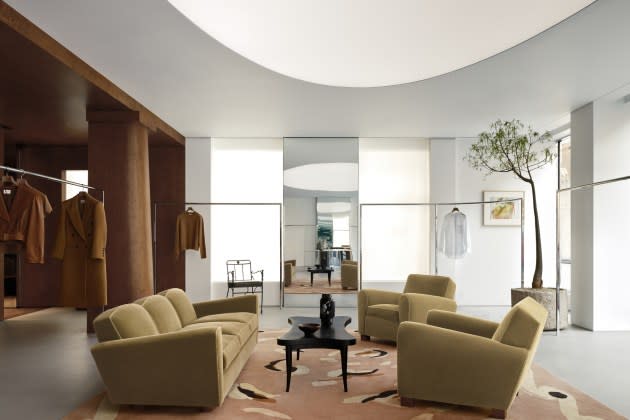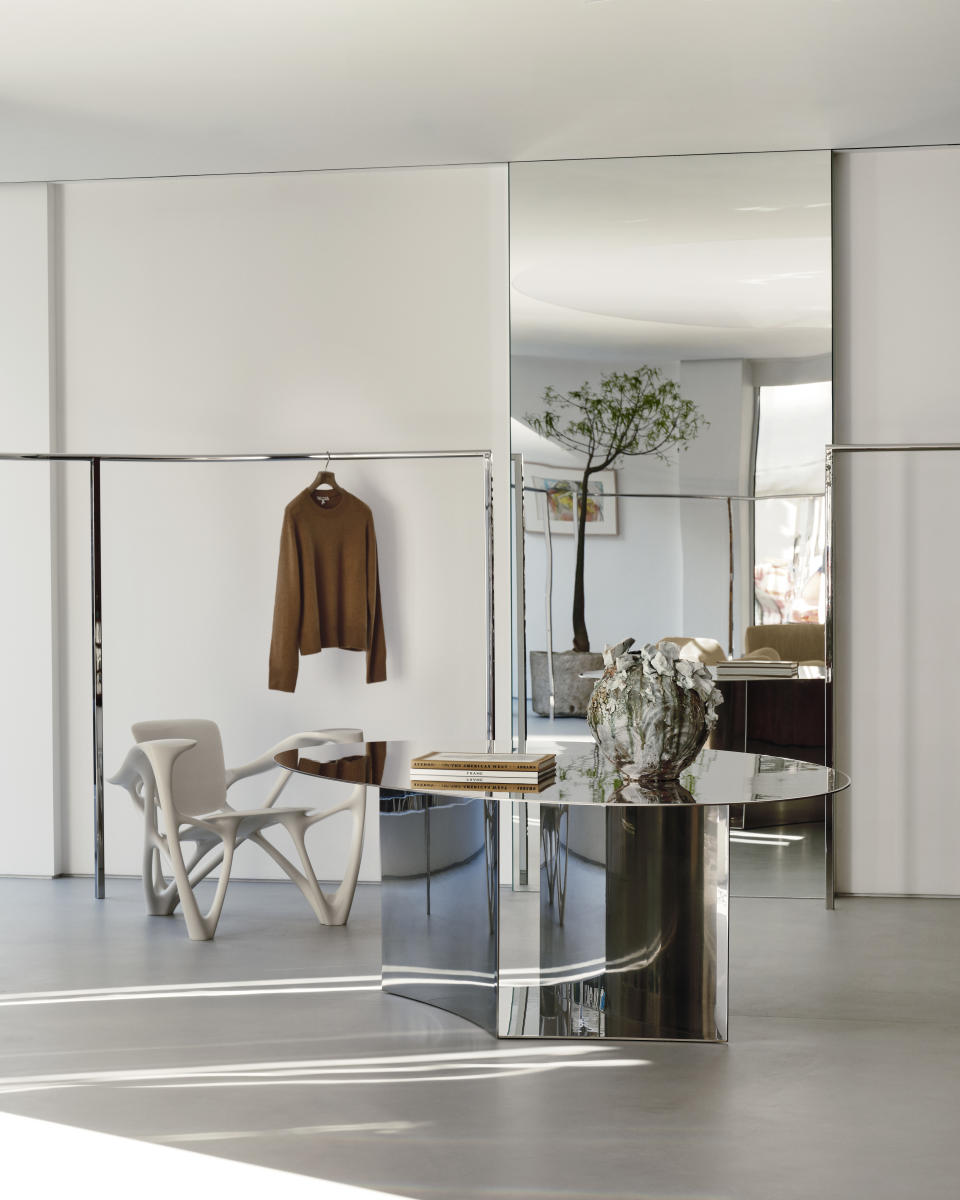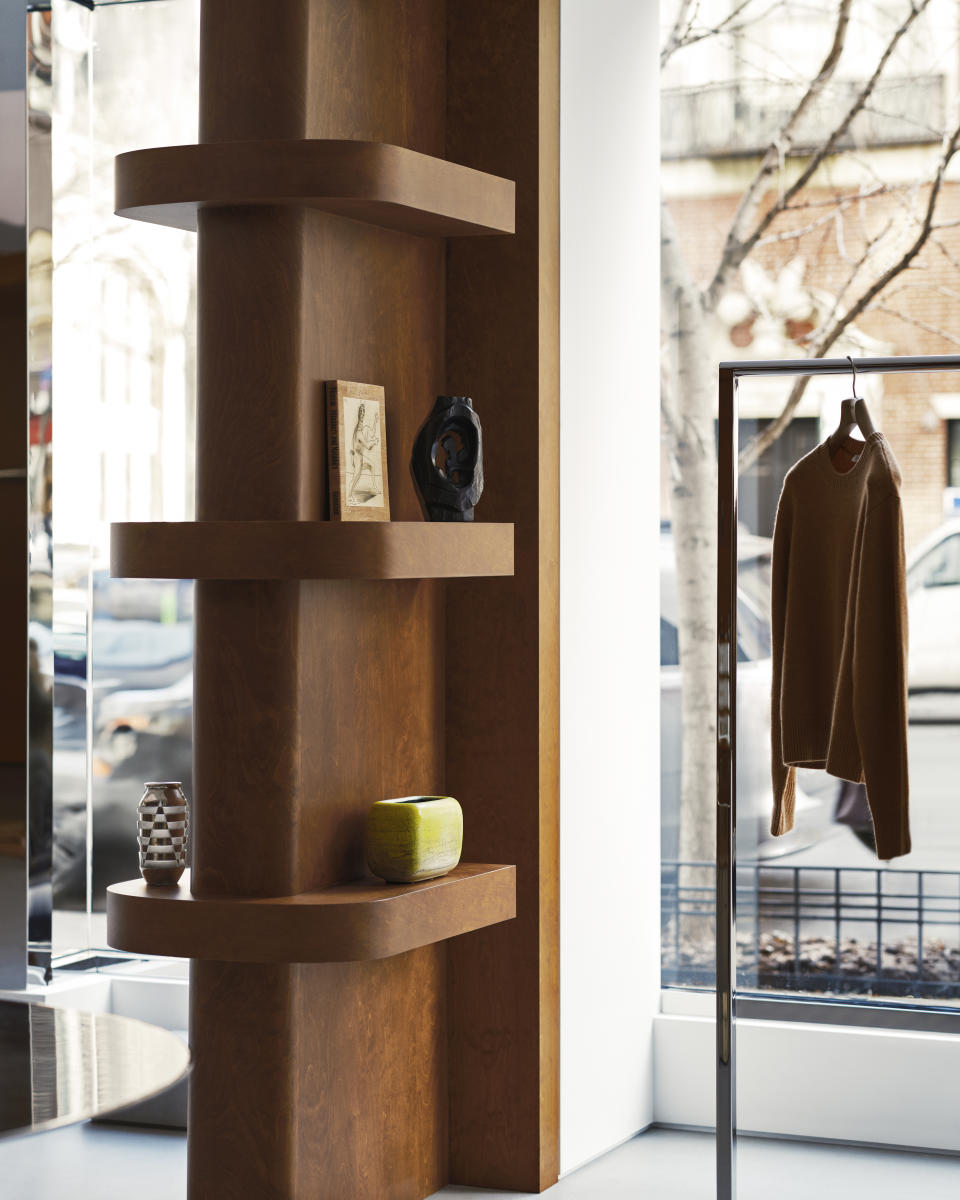Frame Unveils New Residential, Art-driven Store Design on Madison Avenue

NEW YORK – Frame is bringing its elevated aesthetic to Madison Avenue.
The Los Angeles-based brand created by Erik Torstensson and Jens Grede in 2012 as a premium denim label has now grown into a $170 million lifestyle brand with 14 stores around the U.S. and two in London and a robust wholesale business.
More from WWD
JD Sports to Add Alabama-based Hibbett to Growing U.S. Portfolio
Dries Van Noten Hits the Beach for Final Collection With Mytheresa
Meet Rose Schlossberg: Jackie Kennedy's Granddaughter and Modern Look-alike
Last fall, as part of its quest to reinvent and elevate the brand, Frame opened a shop in London’s Marylebone neighborhood with a new, minimalistic design. “That was the first of our new store concept,” Torstensson said.
Now it is bringing elements of that design to the U.S.
In New York, Frame has operated a 1,572-square-foot store at 900 Madison Avenue at 73rd Street since before the pandemic. It started out as a pop-up that ultimately became a permanent location. Once the lease was secured, it gave the company the opportunity to “renovate it properly,” he said.
Because it’s slightly farther north than many of the boutiques that draw tourists to Madison Avenue, Torstensson said the store draws primarily the upscale residents of the Upper East Side. As a result, he created a space that is intended to evoke the look of a Frame living room, he said.
“It is very personal to myself and Flora,” he said. “We want people to come in, hang out and relate to the brand.”
The store, which was designed in partnership with interior designer Flora Byk, showcases the women’s and men’s ready-to-wear collections in an open space, with concrete floors and white walls and a rotating selection of collectible pieces of design, art and decorative objects that will be curated by Torstensson.
The space, which is housed in a building from the 1930s, is centered around a Jean Royère living room, composed of a sofa, two armchairs, a coffee table, and a sculpture by Alexandre Noll courtesy of Galerie Jacques Lacoste that lies on top of a graphic rug with notes from the ’30s and a chair signed by Diego Giacometti.
There is a wooden architectural pocket and three sculptural pillars, another reference to the ’30s.
There is a suspended enfilade by Gio Ponti at the entrance, with mirrored glass drawers and a wooden structure. A large oval skylight is meant to reference the natural light of the brand’s home base of Los Angeles. A polished mirror table was designed specifically for the space by Torstensson and echoes the skylight.

The space also features works by established and emerging artists selected by Torstensson including a George Nakashima side table and Akiko Hirai sculpture courtesy of the Dobrinka Salzman gallery in New York, as well as objects from Galerie HP Le Studio in Paris. There is a series of four paintings by the contemporary Japanese artist Kenjiro Okazaki from Galerie Frank Elbaz and a Willem de Kooning painting from Torstensson’s personal collection.
In the London store, Torstensson personally designed three pieces of furniture, but on Madison Avenue he limited his own work to the one table. Creating furniture is one of his passions, along with photography. He said he is now using AI as “a tool for sketching” his furniture designs. “It’s given me superpowers. But then I have to take it to someone with the talent to make it. Otherwise, it’s just a jpeg and I’ve been making those for 30 years.”
He said he has had inquiries from customers wanting to buy the furniture in the stores, but so far he hasn’t succumbed to the temptation. “But we’re toying with that for the future,” he said, adding that Frame furniture designs “add texture to the brand. It’s like a 360-degree experience when it all comes together. It’s like a brand book.”
The store will offer Frame’s full collections, but will not be overstocked so that the design remains visible to customers. He said the London store has outperformed projections since its opening and he’s similarly hopeful about the Madison Avenue store.

He said Frame is currently refurbishing its Meatpacking store in New York and is tweaking a new location that recently opened in Georgetown in the Washington, D.C., market to incorporate elements of this new design ethos.
“And we’re working on two new stores in the States,” he said, declining to disclose the locations. “In retail, it’s all about signing the right lease for the right space and having the right product. And we haven’t even scratched the surface in Asia, so there will be more to come for sure.”
Best of WWD

